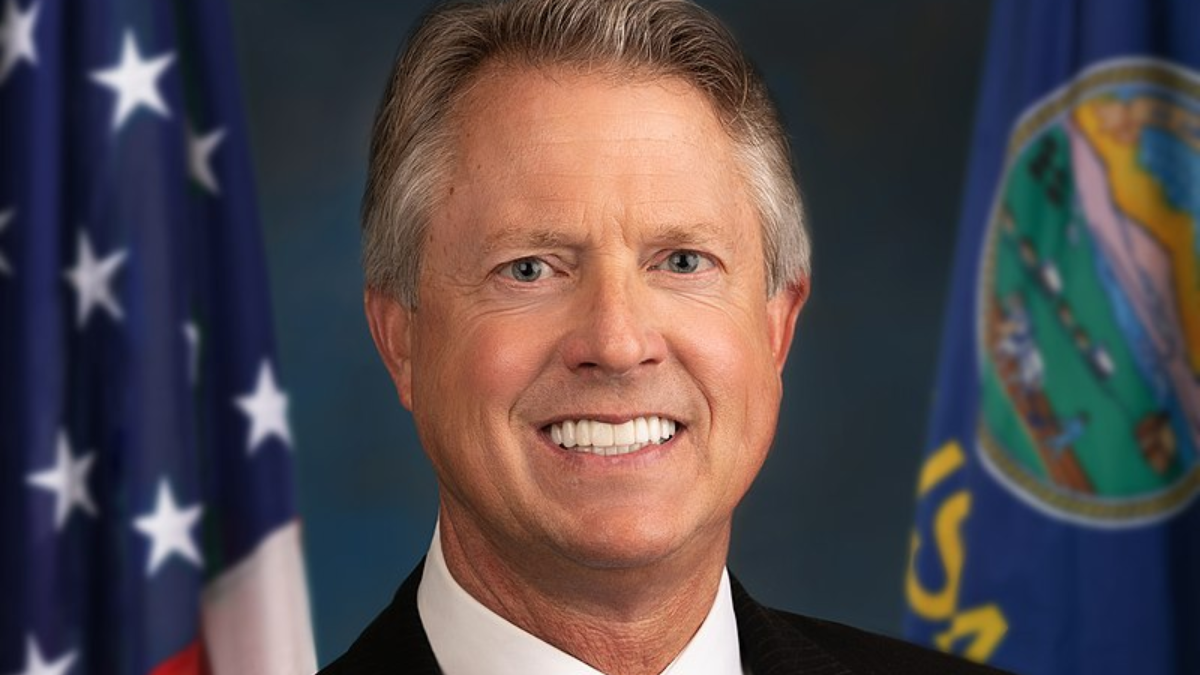Senator Roger Marshall | Official U.S. House headshot
Senator Roger Marshall | Official U.S. House headshot
(Washington, D.C.) – On June 15, U.S. Senator Roger Marshall, M.D., alongside Senators Chuck Grassley, John Cornyn, Tom Cotton, Deb Fischer, Kevin Cramer, Joni Ernst, Eric Schmitt, Ted Budd, and Bill Hagerty introduced legislation that preserves the right of states and local units of government to regulate agriculture within their jurisdiction, free from interference from other jurisdictions. The Ending Agricultural Trade Suppression (EATS) Act would prevent states like California from regulating farmers and ranchers nationwide. Congresswoman Ashley Hinson will be leading this effort in the U.S. House of Representatives.
“The United States is constantly faced with non-tariff trade barriers from protectionist countries, hurting American agriculture’s access to new markets. The last thing we need is a big state like California imposing its will on ag-heavy states like Kansas with regulations that will also restrict our ability to trade among the states,” said Senator Marshall. “This is a matter of state’s rights. If California wants to regulate agriculture in its own state, that’s fine, but California’s rules should not apply to Kansas, whose legislatures never approved of these regulations.”
“California’s Proposition 12 is going to hurt the economy of Iowa, which is number one in pork production. Because we farm differently than the eggheads of California think we ought to run our animal agriculture, we can’t sell our product there. We have to solve this problem by passing legislation. Our bill makes sure Iowa pork can be sold everywhere in the nation, including in California, and consumers can afford bacon for breakfast,” said Senator Grassley.
“States like California shouldn’t be able to tell ranchers in Texas how to do their jobs,” said Senator Cornyn. “This bill would stop other states from driving up Texans’ grocery bills and picking winners and losers at the expense of family farms.”
“States like California shouldn’t regulate how producers in Arkansas manage their farm. Unfortunately, current laws allow big government states to impose burdensome restrictions outside their jurisdiction. This bill will make sure states can maintain their own agricultural productivity and continue interstate trade without interference,” said Senator Cotton.
“State regulations like California’s Proposition 12 could directly disrupt Nebraska producers’ ability to feed the nation. Congress shouldn’t allow any one state to single-handedly upend the country’s agricultural economy and force the American people to bear the burden of higher food prices. I’m proud to co-lead this legislation so Nebraska family farmers and ranchers can continue to produce safe and affordable food for our nation without interference,” said Senator Fischer.
“Liberal states like California are free to regulate agricultural producers within their borders, but that ends when their overregulation harms producers thousands of miles away,” said Senator Cramer. “Not only does the United States have to contend with trade barriers from other nations, but now individual states are forced to reckon with a patchwork of restrictive laws passed by other states. This bill will prohibit individual states and localities from legislating outside their jurisdiction by imposing de-facto regulations on the states who feed them.”
“North Carolina farmers should not have their livelihoods upended by laws from other states. North Carolina, not California, should be in charge of how crops are grown and animals are raised within our state. The EATS Act upholds Congress’ authority and preserves North Carolina’s right to determine our own standards,” said Senator Budd.
“Feeding Americans should not be a political issue, and Democrat-run states have no business forcing more regulations on Missouri farmers simply due to their agricultural practices. Missouri farmers and ranchers feed our country, but certain states have no problem increasing costs and worsening food insecurity in the name of progressivism. I’m proud to join this effort with Senator Marshall – not only to push back against ridiculous policies, but also to protect Missouri ranchers and farmers’ livelihoods,” said Senator Schmitt.
“California should look a little bit more like Iowa, not the other way around. Proposition 12 puts the regulatory burdens on the backs of farmers and racks up the price for consumers at the grocery store, and the EATS Act will prevent such actions from crushing our Iowa producers,” said Senator Ernst. “I will continue to fight against reckless policies from activists who attempt to ban Iowa’s agricultural products.”
“Prop 12 allows liberal lawmakers and radical activists in California — who don’t know the first thing about farming or raising animals — to regulate how farmers do their job, devastating small family farms and undermining food security. Our farmers take great care of their animals and ensure families have safe, affordable, and high-quality food on the table. I am proud to work with Senator Marshall on the EATS Act to ensure farmers can continue to feed the nation and protect interstate commerce,” said Congresswoman Hinson.
“KLA appreciates Senator Marshall’s leadership on this issue,” said Kansas Livestock Association President Shawn Tiffany. “After the recent Supreme Court decision in National Pork Producers Council v. Ross, Congress must act pursuant to its enumerated constitutional authority to ensure commerce between states involving agricultural products can continue uninterrupted. Beef, dairy, and pork producers in Kansas should not be forced to accommodate a patchwork of radical, unscientific state and local standards of production.”
“The fractured opinion issued by the Supreme Court in NPPC v. Ross creates a slippery slope that puts our successful interstate economy at risk, by putting complete control in the hands of our largest states. NCBA supports the EATS Act as a tool to give impacted farmers and ranchers relief from state standards that create new costs and regulatory burden,” said Mary-Thomas Hart, Chief Counsel, National Cattlemen’s Beef Association.
“We appreciate the Senators for working constructively to find a legislative solution to the challenges presented by California Proposition 12. Proposition 12 will have a significant impact on pork producers and consumers across the country,” said Bryan Humphries, CEO National Pork Producers Council.
“As agricultural producers work to feed and fuel a growing population, they need every tool at their discretion and freedom to choose all allowable mechanisms. ARA is pleased to lend support to the EATS Act and applaud its introduction,” said ARA President and CEO Daren Coppock.
“We are grateful lawmakers are seeking ways to ensure grocery store shelves and meat cases across the country do not go bare, and that farmers and ranchers have open access to reach all American consumers,” said Farm Bureau President Zippy Duvall.
“KCGA supports the Kansas Senator Roger Marshall’s EATS Act, a common-sense bill that ensures open trade for ag products.” KCGA CEO Josh Roe said. “Kansas Corn advocates for free trade and elimination of trade barriers around the world, and this act would make sure we don’t encounter trade issues for our ag products within the boundaries of our own country. The EATS Act protects agricultural producers by prohibiting state and local regulations that could create trade barriers for U.S. ag products,” said Kansas Corn Growers Association.
Background:
The Commerce Clause of the Constitution of the United States provides the federal government with the duty to regulate interstate commerce. Consistent with that duty, this bill prevents states from impeding Ag trade from other states within the U.S. States should have the power to command their own destiny when it comes to agriculture production practices. And this bill preserves the right of State and Local units of government to regulate farming and ranching within their own state.
Oftentimes these laws only increase the cost of production which will increase food costs for the food insecure and can also negatively impact an agricultural producer’s bottom line. Increased regulations and costs to value added food companies typically pass the costs on to the consumer. Sometimes these laws directly impact the production of animals forcing producers to bear the brunt of the increased cost of production without an increase in commodity prices.
The most recent and egregious of these barriers is California’s Proposition 12 which requires that meat products raised outside the state conform to the radical animal rights standards adopted by California under the guise of “public health.” Unfortunately the Supreme Court upheld Proposition 12 in its recent decision. Several other states have adopted or contemplated laws that would impact agricultural production outside their state.
In the 117th Congress U.S. Senators Roger Marshall, M.D. (KS), Chuck Grassley (IA), Joni Ernst (IA), John Cornyn (TX), and Cindy Hyde-Smith (MS) introduced the Exposing Agricultural Trade Suppression (EATS) Act to highlight the impending regulatory barrier. Now that the Supreme Court upheld California’s law, it’s time to End Agricultural Trade Suppression.
A coalition of 11 state Governor’s also expressed support of the EATS Act.
Original source can be found here.




 Alerts Sign-up
Alerts Sign-up